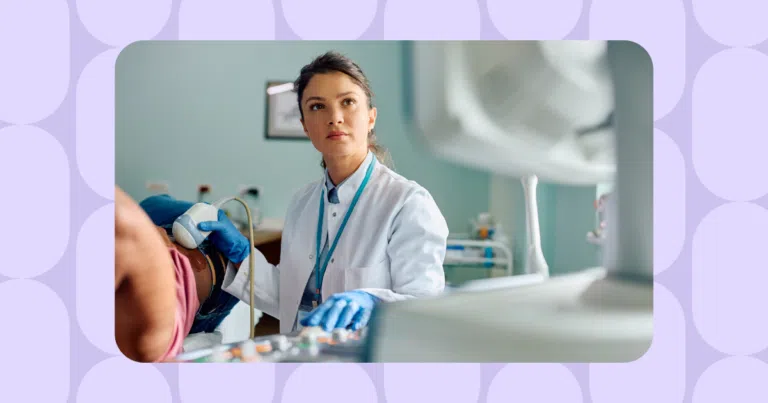Sterile Processing Technician Salary Guide
- Requirements
- Sterile Processing Technician Salary Insights
- Top Sterile Processing Technician Jobs
- Featured Blog Posts
- Salary Tips
- Sterile Processing Technician FAQs
Sterile processing technicians, also called medical equipment preparers, central processing technicians and sterile preparation technicians, clean and maintain medical and laboratory equipment. They typically perform the following duties:
Inspecting equipment for defects
Sterilizing medical equipment and/or laboratory equipment
Maintaining supply inventories
Delivering equipment to individual departments within a medical facility
Packaging sterile surgical instruments
How do you become a sterile processing technician?
Becoming a sterile processing technician is a great way to break into the healthcare field, as you don't need a 4-year degree. The exact education and training requirements depend on where you live. In New York, for example, you may qualify for on-the-job training as an intern, but you can't get a full-time or part-time sterile processing job unless you pass a nationally accredited central service exam. Some states have no specific training requirements, but employers may require national certification and/or completion of an approved training program.
What credentials/licensing does a sterile processing technician require?
As a sterile processing technician, you have two main certification options. The Certification Board for Sterile Processing and Distribution, Inc., offers the Certified Sterile Processing and Distribution Technician (CSPDT) credential, which has 125 scored questions. Applicants must meet one of the following requirements to sit for the exam:
Completion of a sterile processing technician program with a grade of 70 or higher
6 months of full-time employment in a related allied health profession, plus performance of sterile processing activities
12 months of full-time employment involving sterile processing activities
12 months of experience in healthcare product sales or another field that's closely related to sterile processing
The CBSPD also offers the Certified Sterile Processing Management credential for sterile processing professionals who want to assume leadership roles. To sit for the exam, you must meet one of the following requirements:
36 months of full-time experience in sterile processing
24 months of full-time experience in allied health and completion of a sterile processing management course
24 months of full-time experience as a hands-on sterile processing manager or supervisor
Average Sterile Processing Technician Salary
$23.58/hour
The average salary for a Sterile Processing Technician is $23.58 per hour. This is 62% lower than the practicing US average of $38.24.
Last updated on December 20, 2025. Based on active jobs on Vivian.com.
Salaries for Sterile Processing Technician compared to Allied Health Professional National Averages
$23.58/hour
62% lower than the practicing US average.
$38.24/hour
United States
Where do Sterile Processing Technicians get paid the most?
| State | Average Hourly Salary | Max Hourly Salary |
|---|---|---|
| Florida | $28 | $36 |
What are the highest paying Employers and Agencies for Sterile Processing Technician jobs?
| Average Hourly Salary | Max Hourly Salary | |
|---|---|---|
| Medical Solutions Direct Hire | $44 | $44 |
| UW Health | $28 | $30 |
| Jobot | $27 | $27 |
| Tenet Massachusetts | $25 | $25 |
| Detroit Medical Center | $23 | $23 |
| Baylor Scott & White Health | $21 | $21 |
| University of Miami | $19 | $19 |
| Tenet-AZ Region | $19 | $20 |
| Palm Beach Health Network - Tenet | $15 | $15 |
| Tenet South Carolina | $14 | $14 |
Last updated on December 20, 2025. Information based on active jobs on Vivian.com and pay data from BLS and around the web.

Sterile Processing Technician Career Guide
Use our exclusive Career Guides to research the education, qualifications, skills and responsibilities for a variety of healthcare disciplines and specialties employers are hiring now.
Go to the guideTop Sterile Processing Technician Jobs
Sterile Processing Technician
- Gifted Healthcare - Perm
- White Plains, NY
- 5x8 hrs, Evenings
$57K-71K/year
approximately $27-35/hrSenior - Sterile Processing Technician
- University of Wisconsin Hospital and Clinics
- Madison, WI
$24-36/hour
Sterile Processing Technician
- University of Wisconsin Hospital and Clinics
- MADISON, WI
$21-31/hour
Sterile Processing Technician
- Saint Vincent Hospital at Worcester Medical Center
- Worcester, MA
- 5x8 hrs, Evenings
$18-31/hour
Sterile Processing Technician
- Saint Vincent Hospital at Worcester Medical Center
- Worcester, MA
- 5x8 hrs, Evenings
- Sign-On Bonus
$18-31/hour
Get alerts about new jobs and salary trends
Be the first to know about new jobs for Sterile Processing Technicians with the salary that suits you.
How can you increase your pay as a sterile processing technician?
One of the best ways to increase your earning power is to complete a certificate program or a 2-year degree. According to BLS data from May 2021, workers with 2-year degrees have a median weekly wage that’s 19% higher than the average weekly wages for workers with a high school diploma. Even if you don't complete a degree, taking some college courses can help you increase your earnings.
Another option is to obtain the CSPDT credential, as many employers pay more to hire certified sterile processing professionals.
How much does a staff sterile processing technician make?
According to Vivian Health’s salary data from April 14, 2023, sterile processing technicians (SPTs) earned an average of $32.91 per hour. Assuming you work 40 hours per week, that corresponds to a weekly salary of $1,316.40.
Is sterile processing technician a growing career?
The sterile processing technician field is growing rapidly. The U.S. Bureau of Labor Statistics (BLS) projects the demand for SPTs to increase by 17% between 2021 and 2031. This is faster than the average for all occupations. Due to rapid growth in the industry, BLS analysts expect employers to add another 10,000 SPT jobs to the U.S. economy during the 10-year projection period.
What types of employers/facilities have the most sterile processing technicians employed?
If you automatically think of hospitals and laboratories when considering sterile processing jobs, you might be surprised to find that professional and commercial equipment suppliers account for 37% of all SPT employment, according to the BLS. Sterile processing technicians are also employed by the following:
State, local and private hospitals: 12%
Ambulatory healthcare services: 9%
Rental and leasing services: 5%
Health and personal care stores: 5%
Which employers/facilities have the highest pay?
Although hospitals only employ 12% of all sterile processing technicians, they have the highest median annual pay. Hospitals pay about 23.5% more than professional and commercial equipment suppliers and ambulatory healthcare services. According to the BLS Occupational Outlook Handbook, rental and leasing services have the lowest median salary of any industry, according to the BLS Occupational Outlook Handbook.
How does sterile processing technician pay compare to similar healthcare jobs?
Compared to the pay for other healthcare jobs, sterile processing technician pay is at the lower end of the range. According to Vivian Health's data from April 8, 2023, staff SPTs earned an average of $18.37 per hour, or about $735 per week if you multiply that by 40 hours. In contrast, staff telemetry technician salaries averaged $28.66 per week, which is about 36% higher. Travel sterile processing technicians averaged $1,401 in weekly earnings, but travel telemetry technicians averaged $2,050. This is 46.3% higher than the rate for staff SPTs.
Featured Blog Posts
Featured Blog Posts



Sterile Processing Technician FAQs
What professional certifications can potentially increase my salary as a Sterile Processing Technician?
Earning your Certified Ambulatory Surgery Sterile Processing Technicians (CASSPT), Certified Flexible Endoscope Reprocessor (CFER), Certified Instrument Specialist (CIS), Certified Sterile Processing and Distribution Technician (CSPDT), Certified Sterile Processing Management (CSPM) often increases your salary potential as a sterile processing technician or makes you eligible for another position with greater responsibilities, which also might include a bump in wages.
Can having a Certified Ambulatory Surgery Sterile Processing Technicians (CASSPT) boost my salary as a Sterile Processing Technician?
Yes, having a Certified Ambulatory Surgery Sterile Processing Technicians (CASSPT) or any relevant professional certification has the potential to boost your salary as a sterile processing technician.
Can having a Certified Flexible Endoscope Reprocessor (CFER) boost my salary as a Sterile Processing Technician?
Yes, having a Certified Flexible Endoscope Reprocessor (CFER) or any relevant professional certification has the potential to boost your salary as a sterile processing technician.
Can having a Certified Instrument Specialist (CIS) boost my salary as a Sterile Processing Technician?
Yes, having a Certified Instrument Specialist (CIS) or any relevant professional certification has the potential to boost your salary as a sterile processing technician.
Can having a Certified Sterile Processing and Distribution Technician (CSPDT) boost my salary as a Sterile Processing Technician?
Yes, having a Certified Sterile Processing and Distribution Technician (CSPDT) or any relevant professional certification has the potential to boost your salary as a sterile processing technician.
Can having a Certified Sterile Processing Management (CSPM) boost my salary as a Sterile Processing Technician?
Yes, having a Certified Sterile Processing Management (CSPM) or any relevant professional certification has the potential to boost your salary as a sterile processing technician.
Can earning a degree improve my salary as a Sterile Processing Tech?
Where can I learn more about working as a Sterile Processing Technician?
Take a look at Vivian's Sterile Processing Technician Career Guide for more information, including required education, responsibilities, pros and cons and more.